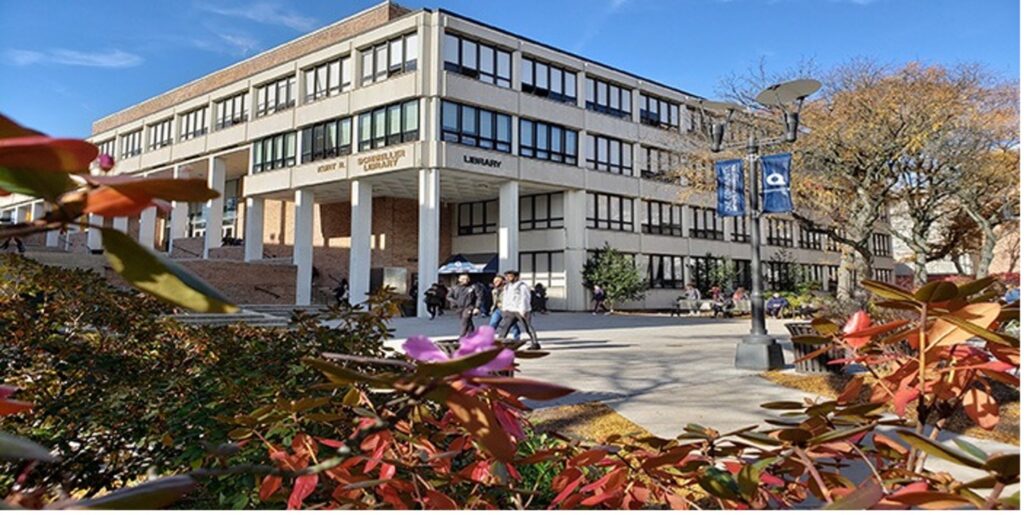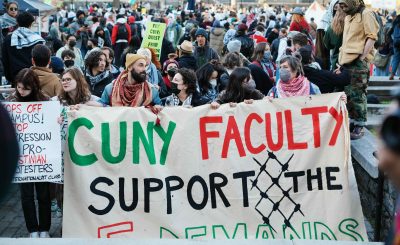
By Estefania Gonzalez. Food is a necessity, yet with the rapidly rising cost of food, how do we ensure people aren’t starving? One answer is local food pantries. Food pantries are offered in various locations across the entire city. They can be found in pop-ups in a park, at a church, or right here on our college campus.
The community pantries run by pop-ups or religious organizations are funded by donations and sometimes, the government. This means the food isn’t always fit for the cultural needs of that specific community. They are often first come, first serve, and close when everything is finished until these organizations can replenish the next day. Food pantries located on college campuses run differently. They aren’t open to the public but are strictly for students on the campus.
Ronni Weprin, from Queensborough Community College’s Office of Strategic Initiatives and Advancement, explained that college pantries like ours are reserved for students and placed in an accessible area where anyone can go without problem. QCC’s Lucille A. Bova food pantry is located in the Administration Building on the first floor. The pantry is wheelchair accessible, allowing access for all. Students are asked to provide a valid QCC ID when visiting to ensure fairness to all who visit the pantry. There is no limit to how many times one can visit the pantry. They only request that during each visit, a student can take no more than 10 items.
On QCC’s website, there is a section for the Lucille A. Bova food pantry. This page shares extensive information on the hours the pantry is open, how to contact them if they are closed, and resources if you are experiencing a food emergency. They also mention that when the pantry is closed, there are prepackaged bags located in the library. The page shares insight with different data to support the importance of their initiative. Their main purpose is to support students who work, attend school, and or both. The Lucille A. Bova food pantry is run by faculty and volunteers. The pantry is supported by different organizations but there is a section on the website on how you can support it as well.
Our pantry caters to the cultural needs of the community, Ronni Weprin explained. It also focuses on versatile ingredients. They stock staple foods that are used across various cultures. For example, grains include rice lentils, and quinoa. Proteins are various types of canned beans, canned fish, chicken, and peanut butter. The pantry also includes crackers, vegetarian soups, pasta, canned fruit, and vegetables. Weprin noted that these ingredients can be adapted to fit a variety of cultural cuisines, and it is encouraged to share recipes using the pantry items.
It is encouraging to know that there are services in place to help Queensborough students. Food is a necessity; without it, there is no way of functioning. When students are working long hours and attending classes, it is still hard to make sure you are still providing enough for themselves. Having a resource like this allows students to focus on their studies and well-being. Our Lucille A. Bova Food Pantry is shown as a highly valuable resource for students and those who volunteer there take pride in the work and support to students they provide.





